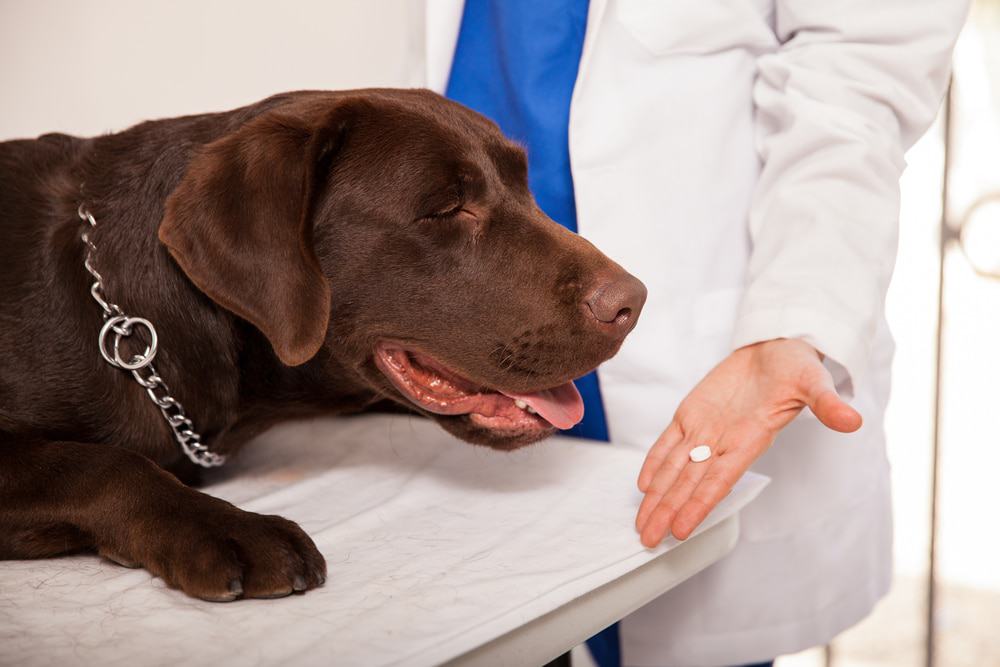If your dog has a history of ulcers, their veterinarian most likely has developed a personalized treatment plan to help them heal. In some cases, veterinarians might prescribe medication to treat the dog’s symptoms. Sucralfate is one type of medication that can treat ulcers and requires a prescription from a veterinarian. If you’ve never heard of this medication but believe it might help your dog’s ulcers, consult their veterinarian for more information.
What is sucralfate?
Sucralfate is an antacid that can treat ulcers in some animals.
Is sucralfate safe for dogs?
The safety of this medication in dogs is not fully understood. It is not currently FDA-approved for veterinary use, but some veterinarians still prescribe it to animals if they deem it safe and healthy. For more information regarding the safety of this medication for your dog, consult their veterinarian.
Dosage
Please note: specific dosage will vary from one dog to another, depending on the dog’s medical history, any medication(s) they take, their age and their weight. Having said that, 1-800-PetMeds outlines the following as a general dosing guideline in dogs:
- 0.5 to 1 tablets three times a day
Keep in mind that dosing is a very personalized component of medication, and it may also differ for cats and horses.
Side Effects
1-800-PetMeds also states that some dogs might experience side effects during treatment with sucralfate, including but not limited to:
- Allergic reactions
- Breathing difficulties
- Constipation
Please note this list is not exhaustive, and if you suspect your pet is experiencing any side effects with this medication, it is critical that you contact their veterinarian immediately.
Final Thoughts
Sucralfate has the potential to treat symptoms that develop as a result of ulcers. This type of illness may be extremely sensitive regarding your dog’s healing journey and treatment plan, so before you start medicating your dog, it is absolutely necessary to ensure their veterinarian is up-to-date with your dog’s medical history.
Disclaimer: This article does not constitute professional medical advice, nor can it replace the advice of a licensed professional.
Other Medications
Acepromazine For Dogs
Amoxicillin For Dogs
Apoquel For Dogs
Aspirin For Dogs
Baytril For Dogs
Benadryl For Dogs
Bravecto For Dogs
Carprofen For Dogs
Cefpodoxime For Dogs
Cephalexin For Dogs
Cerenia For Dogs
Clavamox For Dogs
Clindamycin For Dogs
Cosequin For Dogs
Credelio For Dogs
Dasuquin For Dogs
Doxycycline For Dogs
Dramamine For Dogs
Enalapril For Dogs
Flagyl For Dogs
Fluoxetine For Dogs
Gabapentin For Dogs
Galliprant For Dogs
Glucosamine For Dogs
Meloxicam For Dogs
Methocarbamol For Dogs
Metronidazole For Dogs
Pepcid For Dogs
Pepto Bismol for Dogs
Rimadyl For Dogs
Sentinel For Dogs
Tramadol For Dogs
Trazodone For Dogs
Trifexis For Dogs
Zyrtec For Dogs









